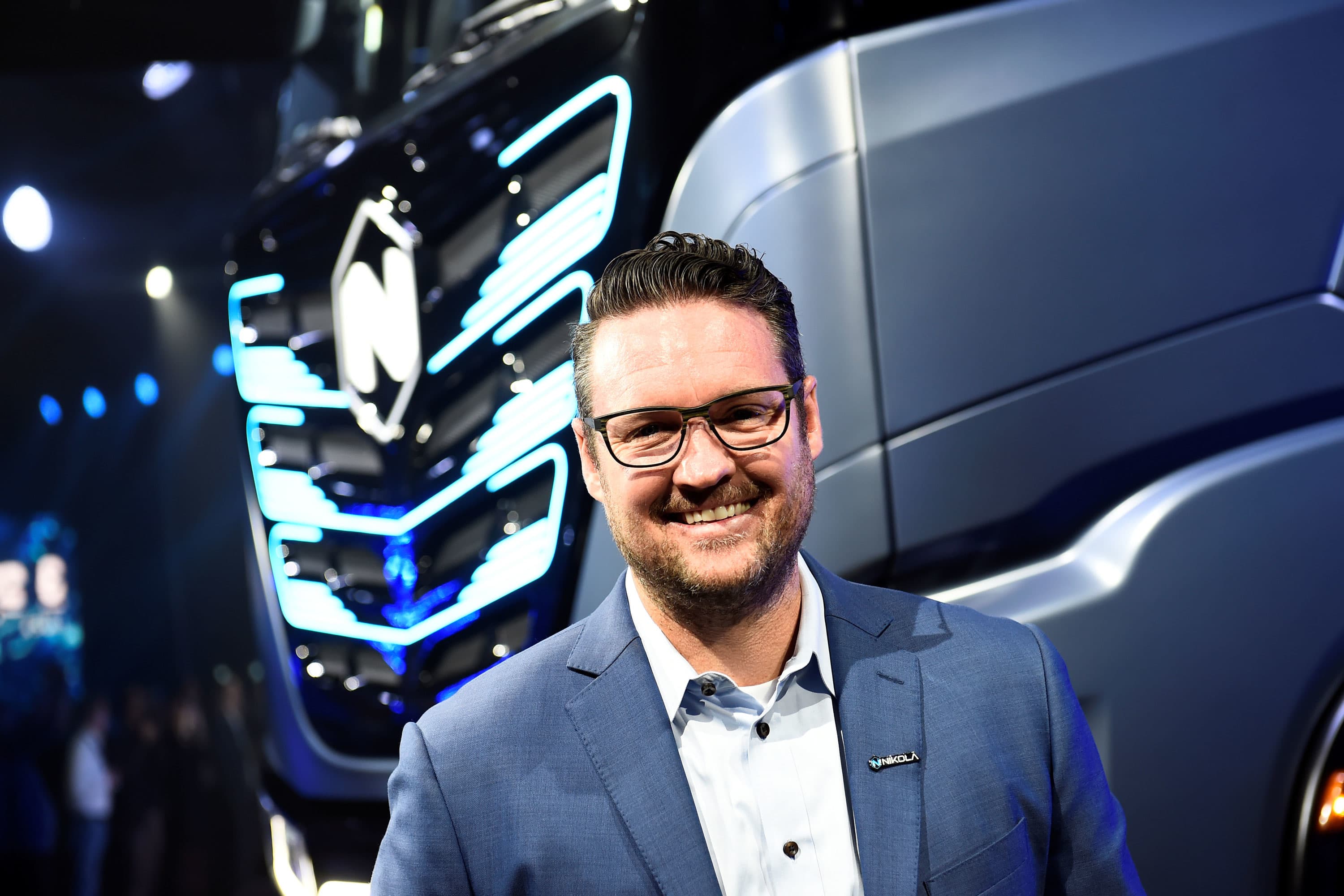Nikola Corp.’s stock has gotten a lot of attention, and its founder boasts that its Badger pickup will rival Ford‘s F-150, the best-selling truck in the U.S., even though you can’t drive one of the electric truck maker‘s vehicles off the dealer’s lot yet.
Nikola went public through a reverse merger on June 4, and its stock has been a roller coaster ride since. It closed June 4 around $34 per share and then soared to nearly $94 each on June 9. It was trading around $64 per share during Tuesday’s session, down more than 6%.
Nikola, which makes battery-electric and hydrogen-electric trucks, will begin taking reservations for the Badger on June 29, founder and executive chairman and founder Trevor Milton said. Reservations will range from $250 to $5,000, and the vehicle will cost about $60,000 to $90,000, Milton said. He acknowledged it will be more expensive than Tesla‘s Cybertruck, which Tesla’s website says starts at $39,900.
“It’s really a true truck like Americans are used to,” Milton said of the Badger on Monday’s “Fast Money.” “It’s the size of an F-150. It’s used for job sites. … It’s got all the doors for a family. You can put car seats in it. You can put a four-wheeler in the back.”
Milton stressed that Nikola isn’t trying to build a Cybertruck rival. “We’re not really competing against it because our truck is a true pickup truck.”
Nikola is primarily known for its electric semitrailers. Milton said the company is producing trucks at its factory in Germany and they will be tested this year and next year. “We’re less than a year out from production and revenue,” he said.
Milton said the semis are Nikola’s “revenue model” while the Badger is the “going-after-the-Ford F-150 crown in the way we touch all the consumers around the world.”
Despite Nikola’s lack of present revenue, Milton said investors are attracted to the company’s mission of reducing the carbon footprint of trucking.
“The generation that’s investing now, they care more about the environmental impact of what you’re doing than they do like, ‘Oh, well you’re six months or eight months from revenue.’ They don’t care,” Milton said. “They’re like, ‘You’re changing the world. You’re going to reduce emissions more than anyone else. We’re invested into you.'”
